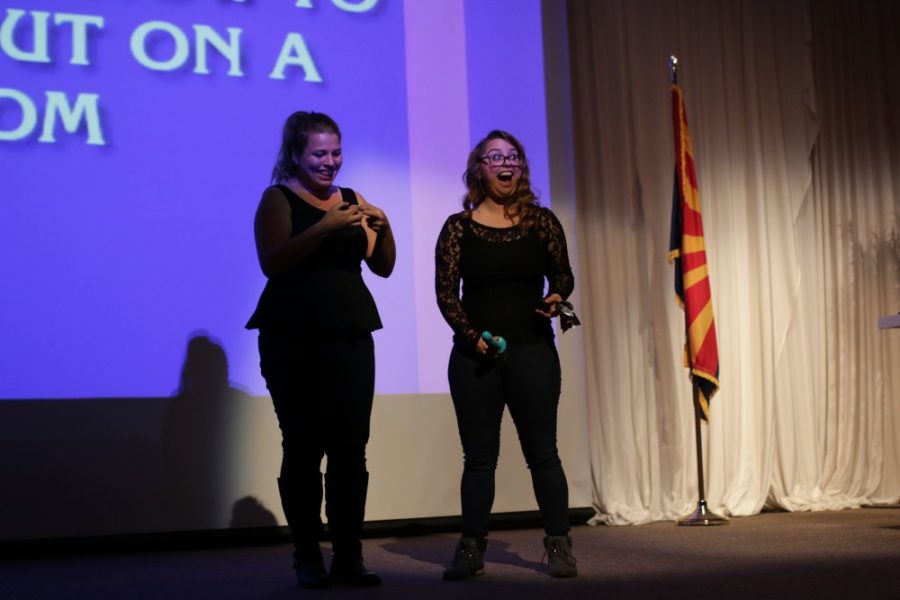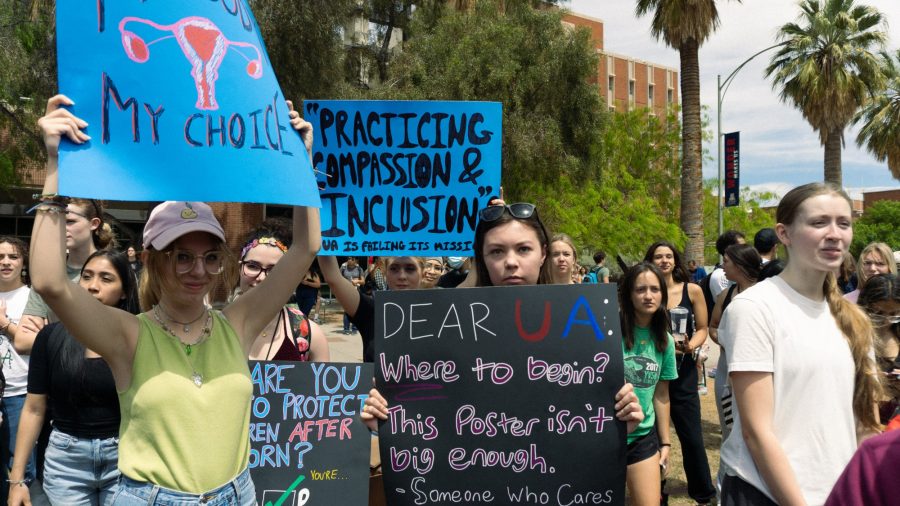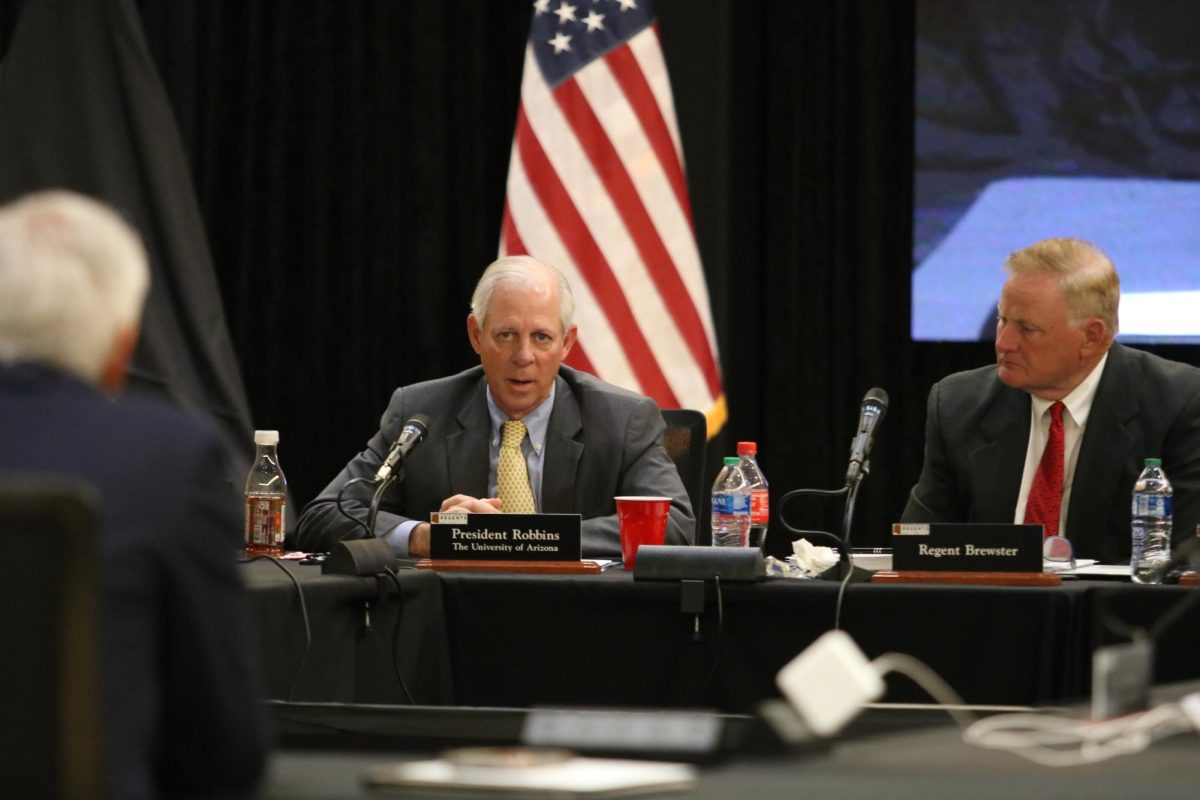This week marks the start of the new campaign launched by the Associated Students of the University of Arizona called, “I Will.” Laci Green, the key note speaker for the campaign, is a sex education activist and YouTube starlet. She gave a lecture at the UA last night called Best Sex Ever, which covered a wide variety of topics on sexual health as one of the campaign activities.
Before the lecture, Ben Stewart, an architecture sophomore, was unsure what the speaker was advocating for.
“Is she a good feminist or naughty feminist,” Stewart said. “Naughty feminist[s] are the ones that advocate for the extreme side of feminism, like to enslave the men and down with the patriarchy.”
However, other students like Amelia Francesco, a grad student studying art history, was familiar with Green’s work and has enjoyed what the speaker has had to say online.
“I really like what I’ve seen on YouTube. Obviously it’s about rape prevention so that’s a big thing,” Francesco said. “This is a really cool event that I think we should have more of because it’s interesting and informative.”
The event started began with Green speaking about her Mormon background, which influenced her to become a sex positive activist.
“We don’t really get sex education in the U.S.,” Green said. “We are the porn generation in the sense—we have easy access to porn.”
Green’s sexual education lecture explained the components of the female reproductive system, and the harmful effects of porn on the way society views the female form.
The lecture also discussed the commonly debated issue of male circumcision. Green regards the procedure as a practice in which Western society should do away with.
“It’s a human rights issue. It’s not a religious thing—its an anti-masturbation thing. We are moving towards a no-more-circumcision campaign,” Green said.
A large part of Green’s campaign encourages the destigmatization of sex acts such as anal sex and masturbation. Guilt after masturbation is not uncommon—around 50 percent of men and 50 percent of women feel a sense of guilt or shame after masturbating, according to a study by Planned Parenthood.
Sexually transmitted diseases, or STDs, contributed to a large portion of Green’s sex lecture. Such illnesses are another aspect of sexual health in which Green works to educate young adults and university students.
“All of these STDs are preventable and most of them are curable. Almost half of students who graduate, graduate with an STI,” Green said.
At the UA, STDs are a health issue that students are encouraged to learn about. Human Papilloma Virus, or HPV, chlamydia and genital herpes are the three most common sexual infections present on the UA campus, according to an information brochure by UA Campus Health.
Around two-thirds of the young adults under the age of 25 have an STD, and the UA alone deals with thousands of cases a year.
The last topic that Green talked about was safe sex. She talked about condoms, female condoms and alternative forms of contraception. She explained that condoms are “a two-handed job.”
She encouraged people to get tested after unprotected sex once a year, as well as before each new partner. Green concluded the event with a recap of how to have safe sex—she showed the audience how to put on a condom.
Green tersely defined sex in order to end her talk. According to her, it’s “the difference between sex and sexual assault.”
Follow Laurel Reisch on Twitter.









